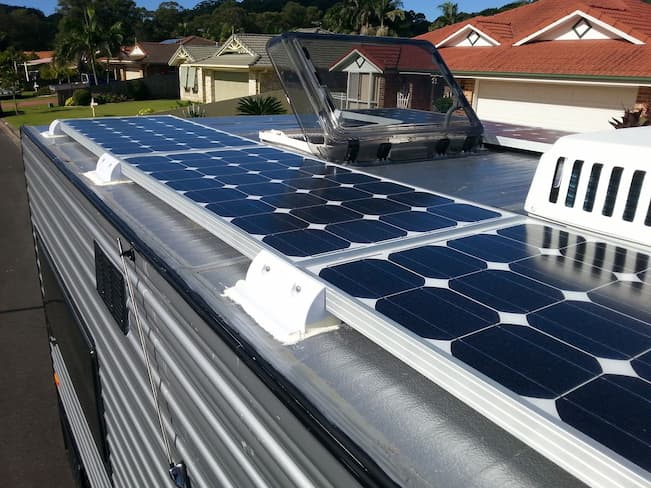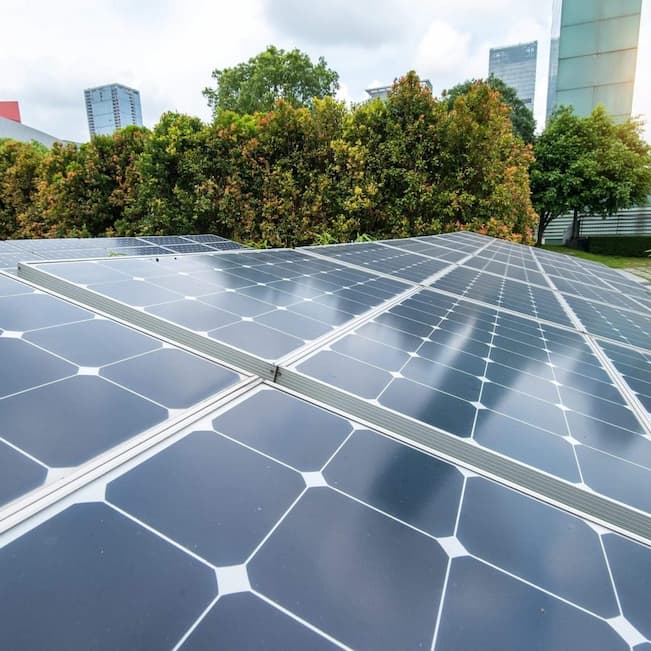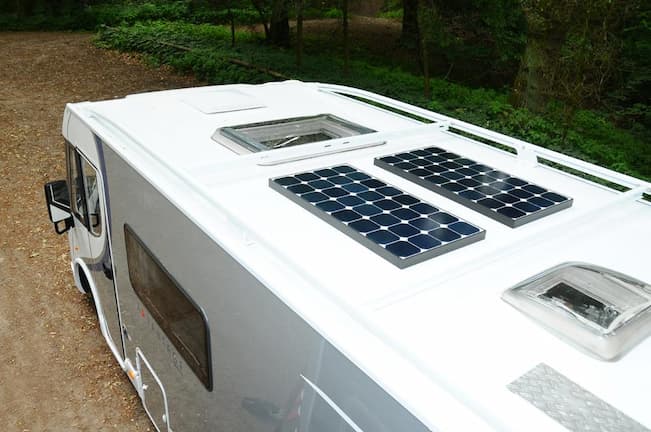If you’ve been always wanting to adopt an RV lifestyle and camp conveniently wherever the road takes you, one of the most valuable upgrades you can make to your vehicle is to equip it with solar panels. These devices will easily meet all your energy needs wherever you are and are so beneficial for many other reasons too.
The Benefits of Solar Caravan Panels
- Generate free electricity to power your devices and keep your motorhome’s battery charged most of the time;
- Get more freedom to travel and explore while not being tied to campsites to charge your phone, laptop or any other device;
- You can rely on your caravan solar panel to provide you with electricity everywhere in the world since it only needs the sun to serve its purpose;
- It’s a budget-friendly investment since once you buy and install solar panels, there are no other expenses;
- Most caravanning solar panels are super lightweight, don’t take up much space and don’t make any noise too, unlike the heavy and noisy generators;
- Generators work by burning fossil fuels and produce exhaust fumes, which is one of the main reasons they are banned in many countries. Unlike them, portable solar panels for caravans are a clean and renewable source of energy that doesn’t cause pollution and carbon emissions, which makes them eco-friendly and welcomed everywhere in the world;
- Solar panels are a very durable investment, and once you install them, you can rest assured that you’ll be provided with the energy you need at least for the next 25 years.

How to Choose the Right Type
Before you decide to embrace these benefits and get some of the durable and high-quality caravanning solar panels on the market, it’s important to determine the right type for your vehicle.
Monocrystalline Solar Panels
The monocrystalline panels for caravans are some of the most popular options a lot of campers rely on since they generate efficient amounts of energy without taking much of your caravan’s space. These solar panels are made of a large number of small silicon crystals, which absorb the photon from the sun. This causes the electrons to separate from the silicon atoms, and make the energy move and get stored to charge your leisure battery.
Aside from that, the monocrystalline solar panels for touring caravans come in black colour, since their solar cells’ silicone has a high level of purity, and once the sunlight interacts with the monocrystalline silicon layer, it creates a black hue. These panels are also usually covered with hardened glass and can come in built-in foldable blankets or with aluminium frames.
Polycrystalline Solar Panels
These panels use the same silicon technology as the monocrystalline ones, with the difference that they’re made from fragments of silicon (many crystal silicons in each cell). This causes the electrons to move with less freedom and results in lower efficiency ratings than the monocrystalline panels.
The nature of the many crystal silicons in a single cell produces a glimmering blue colour which is one of the main characteristics of the polycrystalline solar panels. Same like the monocrystalline ones, these panels come with aluminium frames or as foldable blankets too.

Thin-Film (Amorphous) Solar Panels
These panels use a completely different technology than the crystalline panels. These panels are produced by spraying a fine layer of silicon on another surface (which is similar to the silvering on the back of a mirror), which makes them use fewer materials and therefore, less expensive than the crystalline panels. On account of that, the amorphous solar panels are less durable and efficient, and also take much more space than the crystalline solar panels.
Consider Your Energy Consumption Requirements
After you’ve determined the type of solar panel that works best for you and your vehicle, now you need to determine the optimal amount of energy you’re going to need for your trips. This is one of the most important steps for choosing solar panels for caravans and motorhomes because choosing a less powerful option than your requirements will make you run out of electricity, and on the other hand, choosing the one with bigger electricity power than your requirements means spending too much money without getting the value for them.
So, to determine the optimal energy consumption, the first thing you need to do is to make a list of the appliances and devices you’re about to use in your caravan and their wattage. For instance, the wattage of an average laptop is 20, a phone charger is 2, LED light 8, while an average electric heater has a power rating of 1500 watts.
After you determine their power ratings, the next step is to work out how long you’re planning to use each appliance for each day. For instance, if you’re charging your laptop for two hours each day, you’ll need 20 watts x 2 hours, which means 40 watts per day. Do this for all the devices and electrical appliances you’re about to use to get the optimal wattage you’ll need for your panel to generate.
However, the solar panels won’t produce power all the time, since the sun is not equally bright every day during different seasons. For instance, in the summer days, you can get bright sunshine for 6-7 hours per day, unlike the winter days where you can get a maximum of an hour of sunlight in a day. So, if you were going to need 40 watts per day to charge your laptop in the summer season, you’ll need 40 watts / 6 hours (estimated), which means around a 7-watt panel.
But for the winter days, when your panel will efficiently generate energy for 1 hour, you’ll need a 40-watt panel to charge only your laptop. Once you determine the energy your panel should generate on daily basis, make sure you add an extra 20% to compensate for the cloudy days and for the times your caravan will be in shade.

Some Other Useful Tips
We already agreed that having a solar panel is a very valuable add-on to your caravan for your camping trips. So, we packed a couple of tips and advice to get the most of it.
- Before you throw yourself into searching for a solar panel, make sure you check if it’ll easily adapt to your van. Sometimes the standard clips of the van are not sufficient, and you’ll need to get special adapters to mount it.
- Shade is a solar panels’ greatest enemy, so make sure your caravan is placed directly in the sun in a way that the panel will face horizontally to the sun to generate maximum energy.
- Don’t forget to take care of your battery’s condition. Maintaining and replacing it when needed will make you rest assured that it’s producing enough energy.
- It’s also important to keep the panel clean. The traffic dust, air pollution and different dirt and grime can easily stick on the panel and prevent the sunlight from reaching it. For this reason, gently wipe it with a soft cloth without making polishing motions to avoid creating static that attracts dust. Also, make sure you use warm water and dishwashing soap, instead of abrasive cleaners that will scratch and damage the panel. After you cleaned all the dirt off the panel, rinse it with clean water and allow it to dry on its own.


























